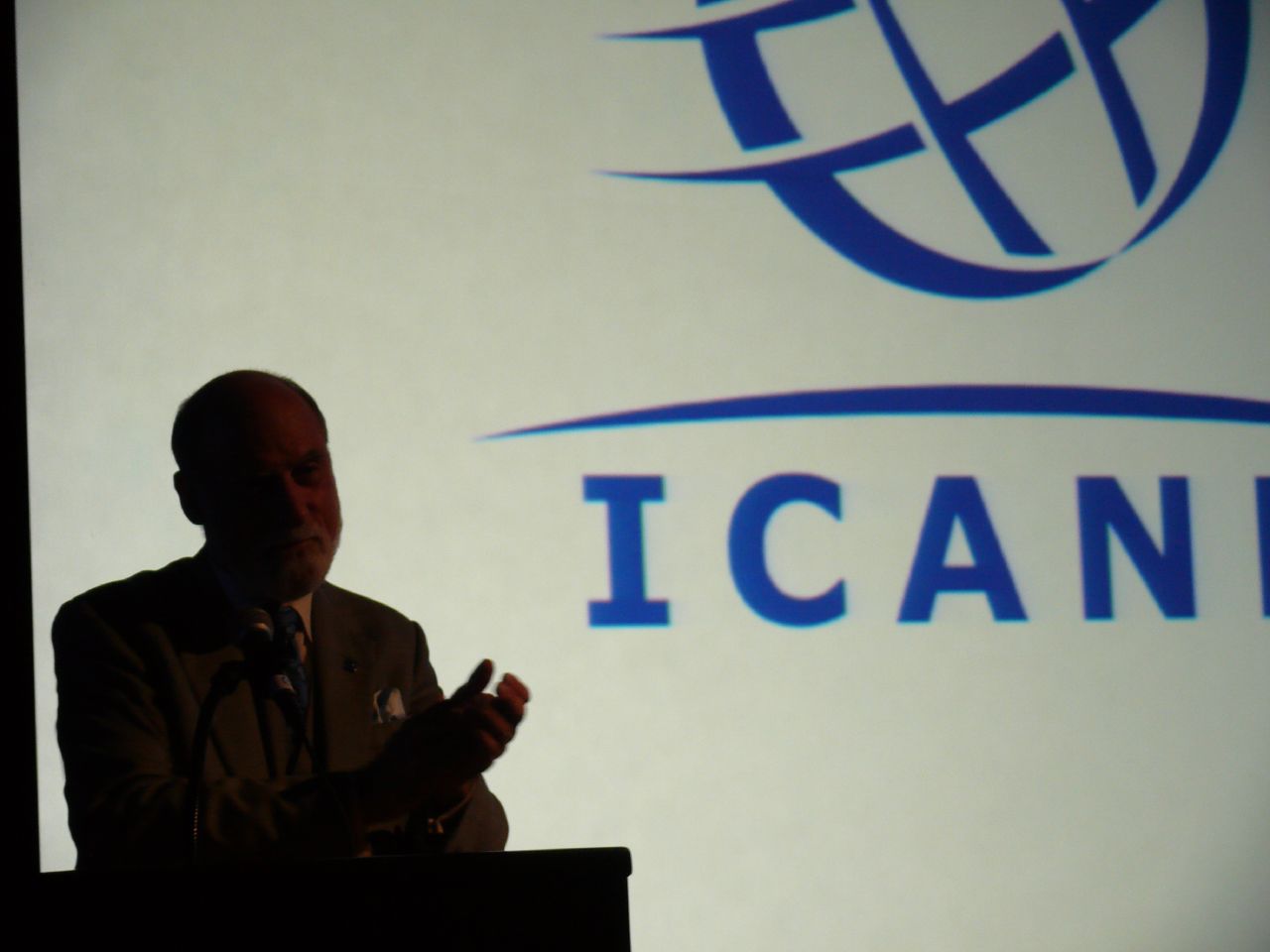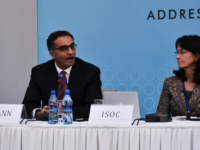
Vint Cerf at ICANN by Veni (CC BY 2.0) https://flic.kr/p/3KWko9
Internet Governance
The LawBytes Podcast, Episode 51: Canada’s Urban-Rural Broadband Divide – Josh Tabish on CIRA’s Internet Performance Data
The state of Internet access in Canada has been the subject of considerable debate in recent years as consumers and businesses alike assess whether Canada has kept pace with the need for universal access to fast, affordable broadband. What is now beyond debate is that there are still hundreds of thousands of Canadians without access to broadband services from local providers and that for those that have access, actual speeds may be lower than advertised and below the targets set by the CRTC, Canada’s broadcast and telecommunications regulator.
CIRA, the Canadian Internet Registration Authority, manages the dot-ca domain and has played an increasingly important role on Internet policy matters. CIRA recently submitted a report on the urban-rural broadband divide as part of a CRTC process on potential barriers to broadband in underserved areas. Josh Tabish from CIRA joins me this week on the podcast to discuss the IPT, the CRTC submission, and the future of universal access to broadband in Canada.
The LawBytes Podcast, Episode 34: The Fight to Save the Dot-Org
The dot-org domain extension was established as one of the first top-level domains in 1985 alongside dot-com, dot-net and a handful of others. In 2002, administration over the domain was awarded to the Public Interest Registry (PIR), a non-profit established by the Internet Society (ISOC), to run the extension. PIR recently announced that it was being purchased by Ethos Capital, a private equity firm that includes a former CEO of ICANN among its founders. With a rumoured purchase price of over $1 billion dollars, there is big money for ISOC but the deal has left the non-profit community worried about potential price increases and policy changes to the domain that could impact online speech. Elliot Harmon, Activism Director with the Electronic Frontier Foundation, recently wrote about the issue and has been working on a campaign with NGOs around the world opposed to the deal. He joined on the podcast to discuss the background behind dot-org, the concerns with the sale, and what can be done about it.
The Trouble with the TPP, Day 16: Intervening in Internet Governance
The Trouble with the TPP series explores Internet-related issues this week, starting with the surprising inclusion of Internet governance in a trade deal. The debate over Internet governance for much of the past decade has often come down to a battle between ICANN and the ITU (a UN body), which in turn is characterized as a choice between a private-sector led, bottoms-up, consensus model (ICANN) or a governmental-controlled approach. Canada (along with countries like the U.S. and Australia) have consistently sided with the ICANN-model, arguing for a multi-stakeholder approach with limited government intervention. In fact, at the 2014 NetMundial conference, the Canadian government stated:
The multistakeholder model of Internet governance has been a key driver in the success of the Internet to date. Canada firmly supports this model and believes it must continue to be the foundation for all discussions in order to preserve the Internet’s open architecture. Canada firmly supports strengthening this model. Government centric approaches would stifle the innovation and dynamism associated with the Internet.
The Trouble with the TPP is that it contradicts Canada’s longstanding policy on Internet governance. While Canada, the U.S. and other TPP countries urge the governments of the world to take a hands-off approach to the Internet, the TPP opens the door to country-code domain intervention (note that I am on the board of the Canadian Internet Registration Authority, which manages the dot-ca domain).
Canada and the TPP: My Talk on a Digital Policy Failure
Last week, I had the opportunity to deliver the keynote address at a Centre for International Governance Innovation (CIGI) panel on the TPP. My talk, which begins at 4:25 and runs until 41:00, focused on the digital policies within the massive agreement, including intellectual property, privacy, and Internet governance. After the talk, there was a panel discussion featuring Myra Tawfik, Warren Clarke, Barry Sookman, and David Lametti. The full event can be found here and is embedded below.
CIRA’s Board Election Launches: Why I Need Your Vote
The Canadian Internet Registration Authority, the organization that manages the dot-ca domain, launched its annual board of director election earlier today. The week-long vote is open to all registered members (anyone with a dot-ca domain registration can become a registered member for free, but must have become a member before the start of the election in order to vote). I was voted onto the board in 2012 and have been nominated to serve as another term by the nominating committee. I need your support as I find myself on the ballot alongside some excellent candidates this year, including former CRTC Chair Konrad von Finckenstein, former Industry Canada executive Helen McDonald, community organizer Marita Moll, and current board members such as CNOC’s Bill Sandiford and Bill Gibson.
I hope that all dot-ca members will take the time to vote since the CIRA board plays an important role on a wide range of digital policy issues, including Internet governance. When I ran for the CIRA board in 2012, I made my primary goal very clear: CIRA generates considerable revenues, has a public interest mandate, and should actively engage the Canadian public in fulfillment of that mandate.











